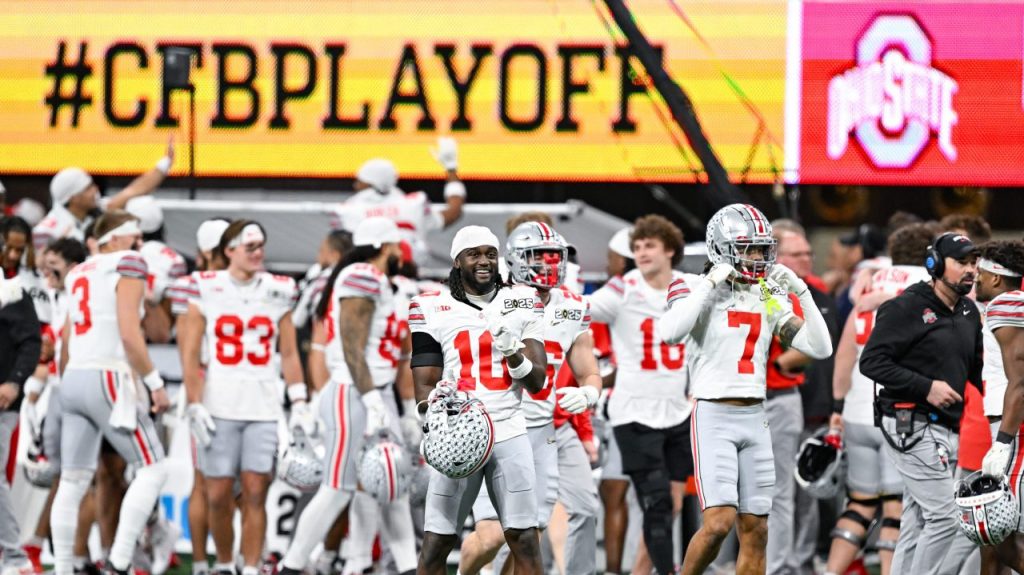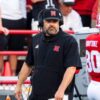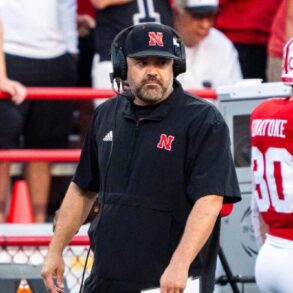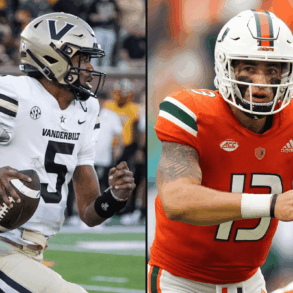
Atlanta attorney Michael McGlamry has reviewed his fair share of settlement agreements over a 30-year career representing plaintiffs in personal injury and wrongful death cases—including former NFL players who sued the league over the long-term effects of head trauma. His process usually begins the same way: examining the release language tucked near the end of the agreement, where the list of parties shielded from liability appears. It’s typically boilerplate—subsidiaries, affiliates, officers, directors.
But when McGlamry, himself a former college football player, reviewed the proposed class settlement in House v. NCAA at the start of the year, one thing immediately stood out: the words “.”
The CFP, which is neither owned nor operated by the NCAA, isn’t a party to the House litigation. It wasn’t named in the companion antitrust cases of Hubbard or Carter, either. In fact, McGlamry says, it wasn’t referenced in any prior pleadings. So why was it suddenly listed among the entities receiving a liability release?
More puzzling still: “College Football Playoff” isn’t a recognized legal entity. That vagueness alone set off red flags.
In January, McGlamry and Florida-based attorney William Cornwell filed formal objections on behalf of Florida State quarterback Tommy Castellanos. Their argument: The settlement “improperly and deceptively release(s) unidentified parties who are not contributing to the settlement.” In their filing, they noted that the term “College Football Playoff” appears just once in the settlement—on page 13—and is not other defined, disclosed or noticed. Plaintiffs’ counsel offered a brief rationale in their motion to approve the deal, asserting that the CFP is an affiliated entity of the defendants, which include the NCAA and the quintet of athletic conferences formerly known as the Power Five.
McGlamry and Cornwell weren’t buying it.
“The defendants have denied any affiliation with any CFP entity in some 15 years of related litigation before this Court and other federal courts,” the objector’s lawyers wrote in Castellanos’ response last month. “Yet now the defendants base their entire release of the ‘College Football Playoff’—a term that they still do not define—on the newly created fiction that whatever the ‘College Football Playoff’ is, it is an affiliate of defendants that must also be released.”
They pointed out that the College Football Playoff generates billions of dollars in revenue—including a newly signed six-year, $7.8 billion broadcast deal with ESPN—and expressed concern that those in charge may have the discretion to manipulate this massive revenue stream while excluding Division I college football players from its benefits. These concerns appeared to strike a chord—at least in part—with U.S. District Court Judge Claudia Wilken, who brought up the issue several times during this week’s fairness hearing over whether to grant the settlement’s final approval.
“I hope we don’t have to spend a lot of time on that,” she said in her opening comments Monday morning, “but we do need to clarify the identity of that organization. Do we need to discuss whether it is receiving funds that should be directed elsewhere?”
Later, Wilken pressed counsel on whether the CFP might be acting as a kind of “slush fund” for revenues that should factor into athlete compensation caps. Attorneys for both the NCAA and the plaintiff class denied any such arrangement. They asserted that any funds flowing through the CFP are accounted for in schools’ standard revenue disclosures submitted to the NCAA.
Brett Daniels, senior director of communications for the College Football Playoff, told Sportico that the CFP had not itself discussed its release with anybody.
“While CFP Administration LLC has no involvement in the case, the conferences who are defendants in the House case are members of CFP Administration LLC, and we expect that they requested that CFPA be included among the releasees,” Daniels said in an email.
McGlamry, for his part, remains suspicious about the whole situation, noting how the NCAA’s attorney, Rakesh Kilaru, initially “fought back so hard” when Wilken pressed the parties to be more specific about the actual CFP entity or entities they sought immunity for.
“When he pushes back, it means [they intend] to have that obtuse, undefined, unexplained ‘College Football Playoff’ reference,” McGlamry said.
Kilaru and class co-counsel Jeffrey Kessler ultimately agreed to provide clarification to the court. Kessler declined to comment, and an NCAA spokesperson did not respond to an email from Sportico.
The CFP’s ambiguous legal identity and opaque governance structure underscore the broader complexities of the college sports industrial complex—a tangled web of LLCs, 501(c)(3)s and conference consortia that can obscure where money flows and where accountability lies.
CFP Administration LLC was registered in Delaware in March 2013 to oversee the operations of the College Football Playoff, two months after the FBS commissioners voted to launch the playoff semifinals. The following year, CFP Administration LLC created CFP Events LLC as a wholly owned subsidiary.
As of last May, filings with the state of Texas indicated that 78% of CFP Administration LLC’s ownership was held in equal 15.6% shares by the Big Ten, ACC, SEC, Big 12 and Pac-12.
Following the mass exodus of Pac-12 schools early last year, that conference was stripped of its recognition as a CFP automatic qualifier. In May 2024, CFP Administration LLC filed a certificate of termination with the California Secretary of State, confirming it would cease conducting intrastate business there.
In their House objector’s filing, McGlamry and Cornwell speculated that CFP Administration LLC was a party to the media rights deal with ESPN. However, Daniels said that contract was signed by the conferences, Notre Dame and BCS Properties LLC—a legacy entity originally formed to manage the Bowl Championship Series media rights and that continues to serve as the intellectual property rights holder for the CFP brand.
McGlamry said this only adds to his concern.
“If all of that had been spelled out in the settlement,” he said, “you can bet your bottom dollar people would’ve raised hell.”
This post was originally published on this site be sure to check out more of their content.







